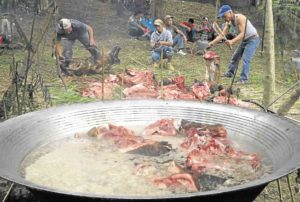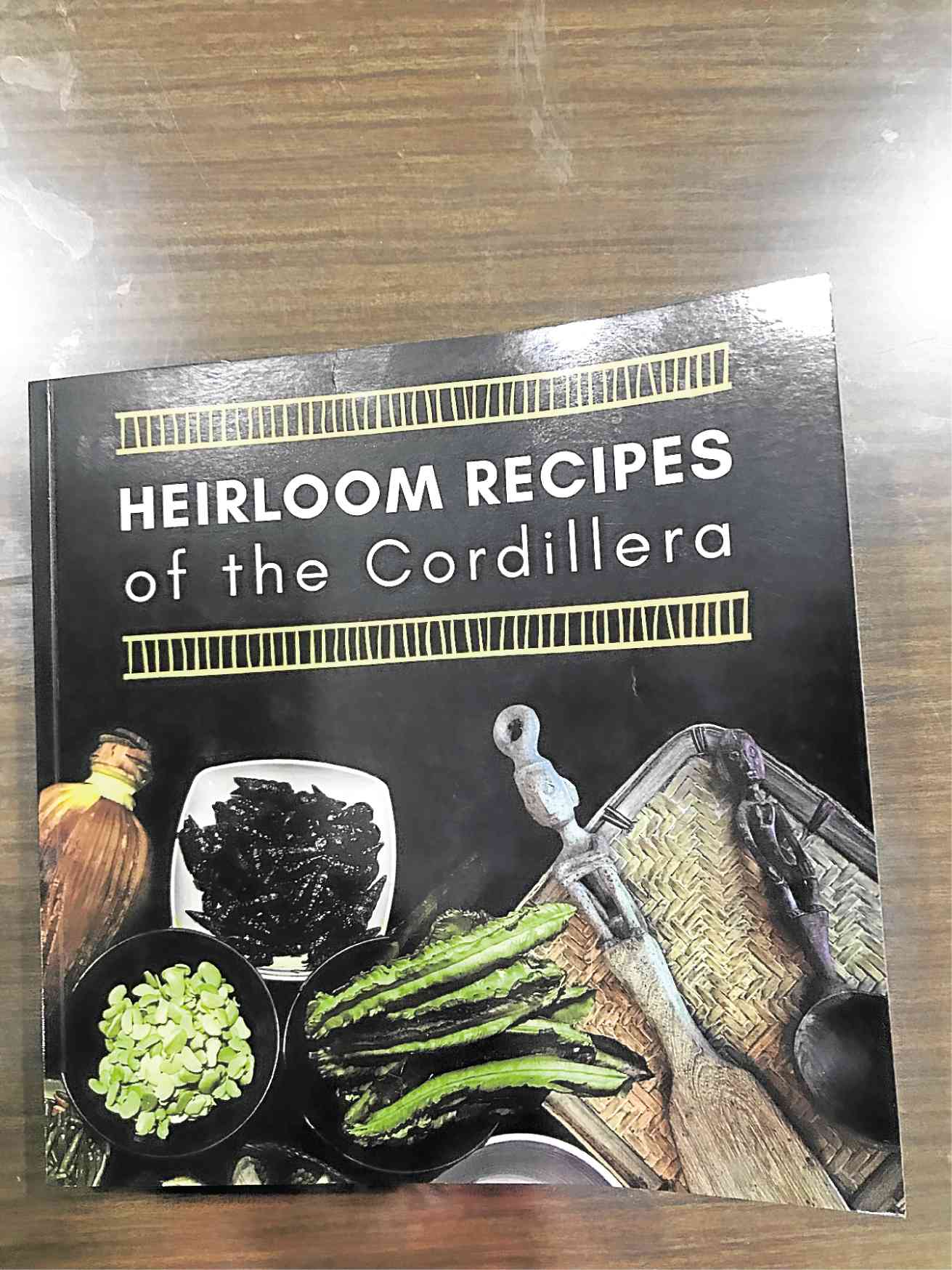Zero waste in traditional kitchen
When food is wasted or when unripe fruit is picked, someone would say “Ayyew!”
Ayyew is a word that expresses a feeling of regret that the value of a thing is wasted. It can be translated as “what a waste,” and is a reminder not to be wasteful. Ayyew encourages mindfulness in using things fully, and thinking of ways to make the best use of things.
Ayyew is behind the common practice of caring for pigs in the mountain villages of the Cordillera. This is so that all discards in the kitchen and extra produce from the garden are put to good use by feeding the pigs.
In return, the pigs grow big and healthy and are ready whenever needed for ritual purposes and also when cash is needed. Even the pigs’ manure is not wasted. It is collected regularly and brought to the fields to fertilize the soil.

COMMUNITY FEAST The cañao (community feast) helps preserve the traditional dishes of the Cordillera.
Children are taught not to waste a single grain of rice and to share with others whatever they cannot consume themselves. If there is plenty of food, it is a good occasion to give thanks and share with neighbors and the community.
When a grandmother teaches a young person how to cook, aside from teaching about the ingredients and the procedure, there are also instructions on what to do with things to discard.
When coconut milk is needed for “patupat,” an instruction is given for what to do with the coconut water and the discarded grated coconut, and that is to feed it to the pigs. Or what to do with the shells of the crabs in the “tengba,” which is again to feed to the pigs.
When cooking gabi, the whole plant is used. The root, the stalk and the leaves are all used together in one dish, and nothing is wasted.
When boiling camote, even the water used to cook the camote is not thrown but kept in a jar and left to ferment to produce “sabeng,” a vinegar and a fermented tonic drink.
And in times of plenty, some of the surplus are preserved by drying, salt-curing, smoking or fermenting.
With ayyew comes a kitchen that wastes practically nothing and produces no garbage. (Reprinted with permission from the book “Heirloom Recipes of the Cordillera”)
